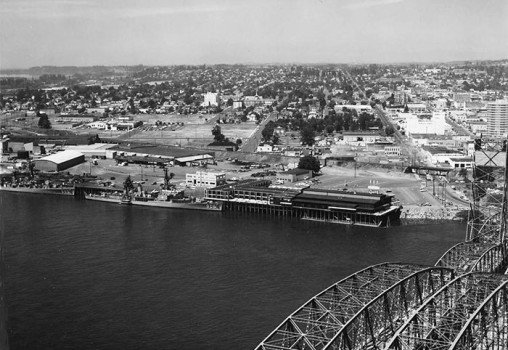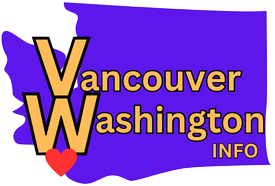Reasons NOT to Move to Vancouver Washington PART TWO
Table of Contents
ToggleReasons NOT to Move to Vancouver Washington PART TWO
Welcome back to the Living in Vancouver & Camas Washington YouTube channel! Today, we’re diving into the second part of our video on reasons NOT to move to Vancouver Washington. We want to provide you with a well-rounded perspective on the area, so we’ll discuss five additional reasons why some may find it challenging to live here.
Firstly, the increasing number of work-from-home transplants is driving up the cost of living. Additionally, the wealth gap between those with the least and the most money is becoming more apparent. Vancouver Lake is known for toxic blue-green algae blooms, making it unsuitable for swimming, and the late summers bring wildfire smoke that can cast a dreary atmosphere. Lastly, there is a housing shortage, leading to the construction of high-density housing and attached homes. Despite these challenges, over 500,000 people love living in Clark County, and we ultimately promote the area. So, let’s delve into these reasons and help you make an informed decision about relocating here!
Increasing Work-From-Home Transplants
Rise in remote working lifestyle in Vancouver
In recent years, there has been a significant increase in the number of work-from-home transplants in Vancouver Washington. More and more individuals and families are choosing to relocate to this beautiful area and enjoy the benefits of remote work. The appeal of a flexible work lifestyle, combined with the affordability of the region, has made Vancouver an attractive destination for professionals looking to escape the high costs and congestion of larger cities.
Impact on housing market due to increased demand
As the influx of work-from-home transplants continues to grow, the demand for housing in Vancouver has skyrocketed. This surge in demand has caused a strain on the housing market, leading to rising prices and limited availability. With more people searching for homes and rental properties, finding affordable housing has become increasingly challenging. As a result, the cost of living in Vancouver has increased significantly, making it less accessible for some individuals and families.
Effects on cost of living and community dynamics
The rise in remote working lifestyle and the corresponding increase in housing demand have had a profound impact on the cost of living in Vancouver. Prices for goods and services have risen, and competition for resources has intensified. This shift in demographics has also affected the community dynamics, as the influx of transplants has changed the composition and character of neighborhoods. It is important for both new and existing residents to adapt to these changes and find ways to maintain the sense of community that Vancouver is known for.
Growing Wealth Gap
Statistics on inequality in Vancouver
One of the pressing issues in Vancouver is the growing wealth gap between the haves and the have-nots. While the region boasts many well-paying jobs and a strong economy, not everyone is benefiting equally. The statistics on inequality paint a concerning picture, with a significant portion of the population struggling to make ends meet. The increasing cost of living, combined with limited job opportunities for lower-income individuals, has exacerbated this wealth gap and contributed to social and economic disparities within the community.
Effects of wealth gap on social structures
The widening wealth gap in Vancouver has far-reaching effects on the social structures of the city. It can lead to increased social stratification, as those with higher incomes have access to better resources and opportunities. This can create divisions within the community and contribute to feelings of isolation and inequality. Addressing this issue requires a multi-faceted approach, including initiatives to improve access to education, employment, and affordable housing for all residents.
Impact of wealth disparity on local services and amenities
The growing wealth gap in Vancouver also has implications for local services and amenities. As more resources are concentrated among the wealthy, essential services may suffer. This can include healthcare, education, and infrastructure projects. The lack of equitable access to these services can hinder the overall well-being and quality of life for residents. It is important for the community to address this disparity and work towards creating a more inclusive and equal society.
Wildfire Smoke and Air Quality
Occurrences of wildfires near Vancouver
In recent years, the Pacific Northwest, including Vancouver, has experienced an increase in the frequency and severity of wildfires during the late summers. While Vancouver itself may not be directly impacted by wildfires, the smoke and poor air quality from these fires can travel long distances and affect the region. Wildfires in nearby areas, such as Eastern Washington and central Oregon, have resulted in episodes of smoky conditions that can persist for weeks, casting a dreary atmosphere over the county.
Impact on air quality and public health
The presence of wildfire smoke can have a significant impact on air quality, posing health risks to residents, particularly those with respiratory conditions or compromised immune systems. Poor air quality can cause respiratory problems, exacerbate allergies, and increase the risk of cardiovascular issues. It is essential for individuals to stay informed about air quality conditions and take necessary precautions, such as staying indoors or using air purifiers, during periods of heavy smoke.
Effect on outdoor activities and lifestyle
The presence of wildfire smoke can also impact the outdoor activities and lifestyle that Vancouver residents cherish. With the region’s stunning natural beauty and abundance of outdoor recreational opportunities, it can be disheartening when smoky conditions limit the ability to enjoy the great outdoors. Hiking, biking, and other outdoor activities may be significantly curtailed during periods of poor air quality. It is important to remain flexible and find alternative ways to stay active and engaged within the community during these times.
Toxic Blue-Green Algae at Vancouver Lake
Issue of periodic algae bloom
Vancouver Lake has been plagued by periodic blooms of toxic blue-green algae. These blooms, also known as harmful algal blooms (HABs), occur when certain types of algae rapidly multiply and produce toxins that can be harmful to humans and animals. These blooms typically happen during warmer months and can result in the closure of the lake for recreational activities.
Impact on water quality and recreational activities
The presence of toxic blue-green algae poses a significant threat to the water quality of Vancouver Lake. The toxins released by the algae can contaminate the water, making it unsafe for swimming and other water-based activities. The closures and restrictions placed on the lake due to these blooms can be disappointing for residents and visitors who enjoy spending time on the water. It is crucial to stay informed about water quality advisories and follow guidelines to ensure personal safety.
Health risks associated with contact or consumption
Contact with or consumption of water contaminated with toxic blue-green algae can have severe health consequences. Exposure to these toxins can lead to symptoms such as skin rashes, respiratory difficulties, nausea, and even liver damage. It is crucial to avoid direct contact with the water during an algae bloom and adhere to any warnings or advisories issued by local health authorities. Protecting personal health should always be a priority when engaging in recreational activities near Vancouver Lake.
Housing Shortage
State of housing market in Vancouver
Vancouver, like many other desirable locations, is facing a housing shortage. The limited supply of available housing has created fierce competition among buyers and renters, driving up prices and making it challenging for individuals and families to find suitable accommodations. The demand for housing has outpaced the rate of new construction, resulting in a significant imbalance in the market.
Rise of high-density housing and attached homes
To address the housing shortage, Vancouver has seen a rise in the construction of high-density housing and attached homes. Developers are maximizing available space by building single-family homes closer together and incorporating townhomes and apartment complexes into the urban landscape. While this approach helps meet the demand for housing, it may also impact the character and aesthetics of existing neighborhoods. Balancing the need for increased housing density with preserving the community’s charm and character is a challenge that Vancouver continues to face.
Impact on community character and environment
The increase in high-density housing and attached homes can have an impact on the community character and environment of Vancouver. The influx of new residents and the changing landscape can alter the sense of community and neighborhood dynamics. It is essential for city planners and developers to work collaboratively with residents to create well-designed, sustainable, and vibrant communities that maintain the unique character of Vancouver while meeting the housing needs of its residents.
Increasing Cost of Living
Comparison of cost of living with other cities
Vancouver has experienced a significant increase in the cost of living, making it more expensive for residents to afford basic necessities and maintain a desirable quality of life. When comparing the cost of living in Vancouver to other cities across the country, it becomes evident that housing, transportation, and healthcare costs are higher. It is essential for potential residents to consider these factors when deciding whether or not to move to Vancouver.
Factors contributing to cost increase
Several factors contribute to the rising cost of living in Vancouver. The housing shortage, as mentioned earlier, has driven up prices, making it challenging to find affordable housing options. Additionally, increased demand for goods and services, combined with limited supply, has led to higher prices for everyday necessities. Other factors, such as transportation costs and healthcare expenses, further add to the overall cost burden for residents.
Effects on local population and economy
The increasing cost of living in Vancouver has had profound effects on the local population and the economy. Higher living expenses can strain household budgets and make it difficult for individuals and families to meet their financial goals. The rising cost of housing, in particular, has led to an increase in the number of people experiencing housing insecurity. From an economic perspective, the cost of living also impacts businesses and job opportunities, as companies must consider the affordability factor when attracting and retaining employees.
Lack of Diverse Entertainment Options
Analysis of Vancouver’s nightlife
Vancouver’s nightlife scene is often perceived as limited compared to other cities. While there are certainly entertainment options available, the range and diversity of choices may not always meet everyone’s preferences. The city’s nightlife primarily consists of bars, clubs, and a handful of music venues, with limited options in terms of alternative or niche entertainment.
Limited cultural amenities
In addition to the nightlife scene, Vancouver also has limited cultural amenities compared to larger urban centers. The city’s focus on nature and outdoor recreation often results in fewer resources directed towards museums, art galleries, theaters, and other cultural institutions. While there are some cultural offerings available, they may not be as extensive or accessible as in larger cities.
Focused tourism towards nature and outdoor recreation only
Vancouver’s natural beauty and proximity to outdoor recreational activities attract a significant number of tourists each year. However, the tourism industry in the region tends to focus primarily on nature-related activities, such as hiking, fishing, and exploring national parks. While this is undoubtedly a draw for many visitors, it can lead to a lack of diverse entertainment options for both residents and tourists looking for alternative experiences.
Educational Infrastructure
Discussion on public schools’ ranking
The quality of the educational infrastructure is an important consideration for families with school-age children. Vancouver has a range of public schools available, but their rankings can vary. It is advisable for parents to research and understand the performance and educational offerings of the schools in their desired neighborhood to ensure their children receive a quality education.
Quality and availability of higher education institutions
Vancouver offers limited options when it comes to higher education institutions. While there are some colleges and universities in the area, the choices may be limited compared to larger metropolitan areas. Students seeking specific academic programs or a wide range of higher education options may need to consider alternative locations or online learning opportunities.
Impact on families with school-age children
The availability and quality of educational institutions can have a significant impact on families with school-age children. Parents often prioritize living in areas with reputable schools to ensure their children receive a solid education. Additionally, the proximity of higher education institutions can be an important factor for families considering post-secondary education for their children. Vancouver’s educational infrastructure plays a crucial role in attracting and retaining families in the area.
Transportation Challenges
Issues with public transport systems
Vancouver’s public transport systems, while available, may face challenges in meeting the needs of residents. The region’s reliance on personal vehicles and the limited scope of public transportation options can make commuting and getting around the city more difficult. Public transport networks, such as buses and light rail, may have limited coverage or frequency, leading to longer wait times and increased congestion on roadways.
Traffic congestion and commuting difficulties
Traffic congestion is a common issue in Vancouver, contributing to longer commute times and increased frustration for residents. The lack of efficient public transport alternatives and the growing population in the area exacerbate these challenges. Finding alternative transportation options, such as carpooling or utilizing bike lanes, can help alleviate some of the traffic congestion and make commuting more manageable.
Lack of biking and walking-friendly routes
Vancouver still has room for improvement in terms of creating bike-friendly and pedestrian-friendly infrastructure. Limited dedicated bike lanes and walkways can deter individuals from choosing active transportation options. Investing in safer and more accessible biking and walking routes can not only improve the overall transportation experience but also contribute to a healthier and more sustainable community.
Conclusion
Summary of issues discussed
In conclusion, Vancouver Washington, while undoubtedly a beautiful and desirable place to live, faces several challenges that potential residents should consider. The increasing number of work-from-home transplants, along with the resulting impact on the housing market and cost of living, can make it difficult for individuals and families to find affordable accommodations. The growing wealth gap has contributed to social and economic disparities within the community, requiring collective efforts to address. Wildfire smoke and the presence of toxic blue-green algae at Vancouver Lake can impact air quality, outdoor activities, and public health. Additionally, the housing shortage, increasing cost of living, lack of diverse entertainment options, transportation challenges, and limitations in educational and transportation infrastructure are factors that potential residents should take into account when deciding whether to move to Vancouver.
Considering alternatives to Vancouver
While Vancouver does present some challenges, it is essential to note that there are still many positive aspects to living in Clark County. The region offers stunning natural beauty, a strong sense of community, and a growing economy. However, individuals and families considering a move to Vancouver may also want to explore alternative cities or regions that better align with their preferences and priorities.
Acknowledging positive aspects amidst challenges
Despite the challenges discussed, Vancouver Washington, remains a beloved home to over 500,000 residents. The region’s natural wonders, sense of community, and opportunities for outdoor recreation continue to draw people to the area. By acknowledging the challenges and working together as a community, residents and local authorities can strive to maintain and enhance the positive aspects that make Vancouver a unique and desirable place to live.
You May Also Like

Hills at Round Lake & Windust Meadows Tour | Camas WA Neighborhood Tour
14 December 2023
A Brief History of Vancouver Washington
3 August 2023


